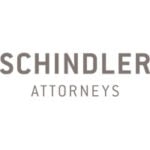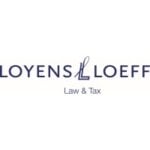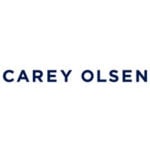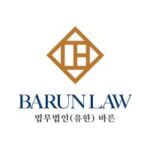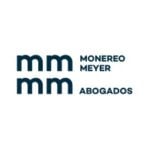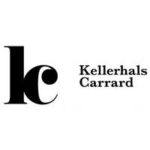-
Which factors bring an individual within the scope of tax on income and capital gains?
Hong Kong adopts a territorial source principle of taxation.
An individual may be brought within the scope of tax on salaries and profits arising in or derived from Hong Kong. Whether or not salaries and profits are derived in Hong Kong is a question of fact. Factors such as residence, habitual residence, domicile, nationality and citizenship are largely irrelevant except for double tax treaty purposes.
In most double tax treaties, an individual is considered a Hong Kong resident if he / she:
- stays in Hong Kong for more than 180 days during a year of assessment,
- stays in Hong Kong for more than 300 days in 2 consecutive years of assessment (one of which is the relevant year of assessment), or
- ordinarily resides in Hong Kong.
Generally, an individual ordinarily resides in where the individual or his / her family lives. The Hong Kong Inland Revenue Department (IRD) will also consider factors such as the number of days the individual spends in Hong Kong and whether he / she has a home available to him / her outside of Hong Kong.
There is no capital gains tax in Hong Kong but certain gains from the disposal of assets in Hong Kong may be subject to profits tax. For details, please see our response in Question 2.
-
What are the taxes and rates of tax to which an individual is subject in respect of income and capital gains and, in relation to those taxes, when does the tax year start and end, and when must tax returns be submitted and tax paid?
Broadly speaking, an individual may be subject to salaries tax, profits tax, and property tax in Hong Kong. There is no capital gains tax in Hong Kong but certain gains from the disposal of assets in Hong Kong may be subject to profits tax.
In Hong Kong, the year of assessment commences on 1 April of each year and ends on 31 March of the following year. All taxpayers are required to complete and return a tax return to the IRD within one month from the date of issue of the return. An extension of one month will be given automatically if the return is filed electronically.
Salaries Tax
Salaries tax is charged on income arising in or derived from Hong Kong from any office, employment of profit or pension at progressive rates from 2% to 17% on the net chargeable income or at the two-tiered standard rates of 15% on the first HK$5,000,000 of the net income and 16% on the remainder without allowances, whichever is lower.
For salaries tax purposes, an individual’s income includes all forms of benefits derived from such office, employment of profit or pension, including (but not limited to) salaries, commission, bonus, gratuity payments and share option gain.
Every individual is currently entitled to a basic allowance of HK$132,000. An individual may also qualify for certain additional allowances such as married persons, child and dependent support, single parents, and disability. An individual is also entitled to claim certain deductions such as approved charitable donations, contributions to the mandatory provident fund (MPF), home loan interests, qualifying premiums paid under a voluntary health insurance scheme (VHIS) and qualifying annuity premium.
In determining where the source of income or where the employment of an individual is located, the IRD will take into account all relevant factors, with particular emphasis on the following:
- where the contract of employment was negotiated, entered into and enforced,
- where the employer is resident, and
- where the individual (ie the employee)’s remuneration is paid to the individual.
Profits Tax
Profits tax is charged on profits arising in or derived from Hong Kong from any trade, profession or business carried on by any individual. For individuals, the profits tax rate is 7.5% on the first HK$2,000,000 of assessable profits and 15% on any part of assessable profits exceeding HK$2,000,000.
For profits tax purposes, dividend income and gains from the disposal of capital assets are generally not chargeable with profits tax. That said, gains from the disposal of assets held as trading stock (as opposed to as capital assets) may be chargeable with profits tax. In addition, under the foreign-sourced income exemption regime in Hong Kong, certain foreign-sourced income or disposal gains may be deemed to be sourced in Hong Kong and chargeable to profits tax.
Property tax
Property tax is charged on any individual owning an immovable property in Hong Kong and derives rental income from it. It is computed at the standard rate of 15% on the net assessable value of such immovable property.
For property tax purposes, the net assessable value is the assessable value (after deduction of government rates paid by the individual and other payments) less 20% statutory allowance for repairs and outgoings. The assessable value is calculated by reference to the actual consideration payable to the individual in respect of the right of use of the immovable property, such as gross rent received or receivable and payment for the right of use of premises under license.
-
Does your jurisdiction provide advantageous tax regimes for individuals directly investing in or holding certain types of assets from an income tax or capital gains tax perspective?
Hong Kong does not provide advantageous tax regimes for individuals from an income tax or capital gains tax perspective. An individual may be subject to salaries tax, profits tax, and property tax in Hong Kong and certain deductions and allowances are available under each category of tax. There is no capital gains tax in Hong Kong.
-
Are withholding taxes relevant to individuals and, if so, how, in what circumstances and at what rates do they apply?
There is no withholding tax on salaries, interests, dividends or rents, except on:
- royalties paid to a non-Hong Kong resident individual and deduction of such payment is claimed in Hong Kong, and
- fees paid to a non-Hong Kong resident entertainer or sportsman for his / her performances in Hong Kong (ie entertainers and sportsmen fees).
Withholding tax rates for royalties depends on:
- whether the non-Hong Kong resident individual is associated or affiliated to a person subject to profits tax in Hong Kong, and
- whether there is a double tax treaty between Hong Kong and the home jurisdiction of the non-resident individual.
Generally, the effective withholding tax rates for individuals are 15% for an affiliated non-Hong Kong resident individual, and 4.5% for a non-affiliated non-Hong Kong resident individual.
For entertainers and sportsmen fees, the relevant withholding tax rates are as follows:
- 10%, if agreements are made directly with a non-Hong Kong resident entertainer or sportsman or through a non-Hong Kong resident agent who is an individual person or a partnership, or
- 11%, if agreements are made with a non-Hong Kong resident agent who is a corporate agent or a corporation.
-
How does the jurisdiction approach the elimination of double taxation for individuals who would otherwise be taxed in the jurisdiction and in another jurisdiction?
Hong Kong has concluded comprehensive double taxation agreements (DTA) with 54 jurisdictions. The most recent DTA, concluded with Rwanda on 9 October 2025, will come into force after completion of ratification procedures by both jurisdictions. Relief from double taxation in respect of income derived by an individual from services rendered in a DTA territory will be provided by way of tax credit. The amount of any relief granted must not exceed the amount of the relief that would be granted had all foreign tax minimisation steps been taken (such as claiming or securing the benefit of relief, deductions, reductions or allowances and making elections for tax purpose).
Further, as part of Hong Kong’s commitment to counter base erosion and profit shifting initiated by the OECD, the Inland Revenue (Amendment) (No.6) Ordinance 2018 (the Amendment Ordinance) was enacted on 13 July 2018 to formally put in place a transfer pricing regulatory regime and introduce legal requirements for transfer pricing documentation into Hong Kong legislation. Broadly, the Amendment Ordinance codifies the arm’s-length principle into the Inland Revenue Ordinance and empowers the IRD to impose transfer-pricing adjustments on either income or expenses arising from non-arm’s length transactions between associated persons that give rise to a Hong Kong tax advantage.
-
Is there a wealth tax and, if so, which factors bring an individual within the scope of that tax, at what rate or rates is it charged, and when must tax returns be submitted and tax paid?
There is no wealth tax in Hong Kong.
-
Is tax charged on death or on gifts by individuals and, if so, which factors cause the tax to apply, when must a tax return be submitted, and at what rate, by whom and when must the tax be paid?
There is no estate duty in Hong Kong for deaths occurring on or after 11 February 2006.
For deaths occurring before 11 February 2006, estate duty is charged on the total value of all the deceased’s assets situated in Hong Kong. The relevant rates are as follows:
- for deaths occurring on or after 15 July 2005 and before 11 February 2006 with the principal value of the estate exceeding HK$7.5 million, a fixed nominal amount of HK$100,
- for deaths occurring before 15 July 2005, at a sliding scale of rates from 5% to 18% depending on the value of the estate.
Certain exemptions (including (but not limited to) foreign assets, donations paid to recognised charities, immovable property held by the deceased as trustee only, and matrimonial homes etc) may be allowed.
Where estate duty is chargeable, it is necessary for the deceased’s personal representatives to obtain estate duty clearance from the IRD before applying for grant of representation.
There is no gift tax in Hong Kong but stamp duty is charged on lifetime gifts of Hong Kong immovable property or Hong Kong stock. The transfer of Hong Kong immovable property or Hong Kong stock on death pursuant to a Will or intestacy rules are not chargeable with stamp duty.
-
Are tax reliefs available on gifts (either during the donor’s lifetime or on death) to a spouse, civil partner, or to any other relation, or of particular kinds of assets (eg business or agricultural assets), and how do any such reliefs apply?
There is no gift tax in Hong Kong but stamp duty is charged on lifetime gifts of Hong Kong immovable property or Hong Kong stock. The transfer of Hong Kong immovable property or Hong Kong stock on death pursuant to a Will or intestacy rules are not chargeable with stamp duty.
No relief from stamp duty is available in respect of lifetime gifts of Hong Kong immovable property or Hong Kong stock made between individuals. The Stamp Duty Ordinance provides for several specific circumstances where there will be relief or exemption from stamp duty but these are largely inapplicable in the context of lifetime gifts made between individuals.
-
Do the tax laws encourage gifts (either during the donor’s lifetime or on death) to a charity, public foundation or similar entity, and how do the relevant tax rules apply?
Donations of money to charitable institutions or trusts of public character that are exempt from tax (Tax Exempt Charities) under section 88 of the Inland Revenue Ordinance (IRO) may qualify for a tax deduction up to 35% of the assessable income or profits of the donor for salaries tax, profits tax or personal assessment purposes, provided that the aggregate amount of donation is HK$100 or above.
Donations of Hong Kong immovable property or Hong Kong stock to a Tax Exempt Charity are exempt from stamp duty.
-
How is real property situated in the jurisdiction taxed, in particular where it is owned by an individual who has no connection with the jurisdiction other than ownership of property there?
Please include a brief description of any property taxes in your answer to this question, and whether an official valuation is required for the purposes of such taxes.
In Hong Kong, tax relating to Hong Kong immovable property is not charged on the immovable property itself, but on the owner or occupier of the immovable property, or specific instruments dealing with the immovable property.
Government Rates
Government rates are charged at a percentage of the rateable value of a Hong Kong immovable property for which the owner and occupier are jointly liable. Responsibility for payment will usually be agreed on between the owner and occupier in practice.
All Hong Kong immovable properties are liable to the assessment of government rates. For the financial year 2025-2026, the rates percentage charge is 5%. With effect from 1 January 2025, government rates for domestic properties are calculated at progressive rates charge scale from 5% to 12% depending on the rateable value of the immovable property.
Property Tax
Property tax is charged on any individual owning an immovable property in Hong Kong and derives rental income from it, computed at the standard rate of 15% on the net assessable value of such immovable property.
For property tax purposes, the net assessable value is the assessable value (after deduction of government rates paid by the individual and other payments) less 20% statutory allowance for repairs and outgoings. The assessable value is calculated by reference to the actual consideration payable to the individual in respect of the right of use of the immovable property such as gross rent received or receivable and payment for the right of use of premises under license.
Stamp Duty
Stamp duty is chargeable on instruments for the transfer (whether by way of sale and purchase or voluntary transfer) and lease of Hong Kong immovable properties.
Ad valorem stamp duty (AVD) is chargeable on transfers of Hong Kong immovable properties, computed at the following rates on either the consideration or value of the immovable property (whichever is higher):
- Part 1 of Scale 1 Rates: for transfers of Hong Kong residential properties during the following periods, unless Scale 2 Rates applies:
- between 5 November 2016 and 24 October 2023, 15%,
- between 25 October 2023 and 27 February 2024, 7.5%, and
- after 27 February 2024, at Scale 2 Rates.
- Part 2 of Scale 1 Rates: this ranges from 1.5% to 8.5% depending on the consideration or value of the immovable property, and applies to:
- transfers of Hong Kong residential properties on or after 23 February 2013 but before 5 November 2016, and
- transfers of Hong Kong non-residential properties on or after 23 February 2013 but before 26 November 2020.
- Scale 2 Rates: this ranges from HK$100 to 4.25%, depending on the consideration or value of the immovable property, and applies if the transfer is exempted from the application of the higher Part 1 of Scale 1 Rate, such as where the purchaser or transferee is a Hong Kong permanent resident acting on his / her own behalf and does not own any other Hong Kong residential property, or where the transfer is to closely related person(s) (such as a spouse or parent)
With effect from 28 February 2024, transfers of Hong Kong residential properties are no longer chargeable with buyer stamp duty (BSD) and special stamp duty (SSD). Prior to 28 February 2024, BSD and SSD may also be chargeable on certain transfers of Hong Kong residential properties. Where applicable, these are charged in addition to AVD.
BSD was chargeable on transfers of Hong Kong residential properties on or after 27 October 2012 and before 28 February 2024 at a fixed rate of 15% of the consideration or value of the residential property (whichever is higher) unless the purchaser or transferee is a Hong Kong permanent resident acting on his / her own behalf and does not own any Hong Kong residential property.
SSD was chargeable on transfers of Hong Kong residential properties acquired on or after 20 November 2010 and before 27 October 2012 at rates from 5% to 15% if the residential property was disposed of by the vendor or transferor within a 36-month period after the vendor initially acquired it. For Hong Kong residential properties acquired on or after 27 October 2012 and before 28 February 2024, SSD is chargeable at rates from 10% to 20%. Certain transfers (such as transfers between closely related persons) are exempted from SSD.
In addition to transfers of Hong Kong immovable properties, stamp duty is also charged on leases of Hong Kong immovable properties calculated at rates from 0.25% to 4.25% of the yearly or average yearly rent of such immovable property, depending on the term of the lease.
- Part 1 of Scale 1 Rates: for transfers of Hong Kong residential properties during the following periods, unless Scale 2 Rates applies:
-
Does your jurisdiction have any specific rules in relation to the taxation of digital assets?
In Hong Kong, there are no specific rules in relation to the taxation of digital assets. The existing tax rules under the IRO apply to the taxation of digital assets.
In a guidance note issued by the IRD in 2020, the IRD provided certain guidance on how the existing Hong Kong tax rules apply to digital assets. In brief terms:
- Profits tax treatment of digital tokens depends on their nature and how they are used.
- To the extent that digital tokens constitute “securities” for the purpose of the Securities and Futures Ordinance, provisions in the IRO relating to securities and collective investment schemes apply. In relation to initial coin offerings (ICOs), the IRD will assess the rights and obligations attached to the tokens, rather than the form in which they are issued, to determine tax treatment. If tokens represent equity or ownership interests in the issuer, the ICO proceeds are generally capital in nature and not chargeable to profits tax. On the other hand, if tokens confer a right to future benefits without equity or ownership interests, the proceeds are generally treated as prepayments for future goods or services, and revenue recognition then depends on the issuer’s performance obligations and should follow generally accepted accounting principles.
- Gains from the disposal of digital assets held as trading stock may be chargeable with profits tax. Whether digital assets are capital assets or trading stock is a question of fact. If digital assets are acquired for long‑term investment purposes, any profits on their disposal would generally not be chargeable with profits tax.
- Hong Kong‑sourced profits from cryptocurrency activities (eg buying and selling, exchange, or mining) may be chargeable to profits tax if they are carried out by way of business.
- Cryptocurrencies received in the ordinary course of a cryptocurrency business may be treated as business receipts and are assessed accordingly.
- If a business accepts cryptocurrency from customers or uses it to purchase goods or services, the market value of the cryptocurrency at the transaction date should be used to measure sales and purchases.
- If employees are remunerated in cryptocurrency, the same salaries tax treatment applies as for income paid in fiat currency.
In 2024, the Hong Kong Government announced its commitment to the implementation of the OECD Crypto-Asset Reporting Framework to improve international tax transparency in crypto-asset transactions, and the first automatic exchanges between Hong Kong and the relevant jurisdictions are intended to start from 2028.
-
Are taxes other than those described above imposed on individuals and, if so, how do they apply?
Other than the taxes described above, stamp duty is also charged on transfers (whether by way of sale and purchase or voluntary transfers) of Hong Kong stock.
The current rate of stamp duty is a fixed rate of HK$5 plus an ad valorem rate of 0.2% of the stated consideration or the value of the shares transferred (whichever is higher).
-
Does your jurisdiction provide advantageous special tax regimes for individuals from a wealth tax, inheritance/estate tax or gift tax perspective?
There is no wealth tax, inheritance/estate tax or gift tax in Hong Kong.
-
What steps might an individual be advised to consider before establishing residence in (or becoming otherwise connected for tax purposes with) the jurisdiction?
There is no particular pre-entry tax planning in Hong Kong.
-
Once an individual has left (and is no longer connected for tax purposes with) the jurisdiction, does the jurisdiction charge any form of exit tax or retain taxing rights over the individual's directly held assets or structures which they created or have an interest in?
Hong Kong does not impose exit tax on individuals who has left or intending to leave Hong Kong. However, before departure the individual should complete tax clearance with the IRD and ensure all outstanding liabilities are settled.
After leaving Hong Kong, the individual remains chargeable to salaries tax and profits tax on income arising in or derived from Hong Kong. For further details, please refer to our responses to Questions 1 and 2.
-
What are the main rules of succession, and what are the scope and effect of any rules of forced heirship? Do any forced heirship rules apply automatically, or is it necessary for heirs to bring claims to enforce their rights?
The law of succession in Hong Kong is derived from English law but modified by local Ordinances and case laws. The main legislations relating to succession are:
- the Probate and Administration Ordinance
- the Wills Ordinance (WO)
- the Intestates’ Estates Ordinance (IEO)
- the Inheritance (Provision for Family and Dependants) Ordinance (IPO)
In situations involving a cross-border element, the law applicable to the succession of immovable properties is the law of the place where the immovable property is situated (the lex situs), and the law applicable to the succession to movable properties is the law of the place where the deceased was domiciled at death (the lex domicilii).
Individuals in Hong Kong have freedom of disposition over their estate on death. There is no forced heirship regime in Hong Kong.
However, under the IPO, certain classes of relatives or dependents of the deceased may apply to the Hong Kong courts for payments or other financial provisions to be made out of the estate on the basis that the disposition of the estate under the deceased’s Will or intestacy rules under the IEO is not sufficient to make reasonable financial provision for such person.
Further, if an individual disposes of his / her assets to another person within 6 years before he / she dies without receiving valuable consideration for the transfer with the intention of defeating applications under the IPO for financial provisions, the Hong Kong courts may, on application by a relative or dependent, order the recipient of those assets to provide such sum of money or other immovable property as it thinks fit for the purpose of the making of financial provision.
-
Is there a special regime for matrimonial property or the property of a civil partnership, and how does that regime affect succession?
Please include a description of any choices available to individuals on contracting a marriage or civil partnership, and the effect of those choices.
In Hong Kong, there is no special regime for matrimonial immovable property.
Individuals in Hong Kong have freedom of disposition over their estate during their lifetime. There is no matrimonial or community immovable property regime in Hong Kong.Hong Kong does not currently have a civil partnership regime. Civil partnerships registered overseas are generally not recognised in Hong Kong.
-
What factors cause the succession law of the jurisdiction to apply on the death of an individual?
In situations involving a cross-border element, the law applicable to the succession to immovable properties is the law of the place where the immovable property is situated (the lex situs), and the law applicable to the succession to movable properties is the law of the place where the deceased was domiciled at death (the lex domicilii).
-
How does the jurisdiction deal with conflict between its succession laws and those of another jurisdiction with which the deceased was connected or in which the deceased owned property?
If there is a conflict between the succession laws of Hong Kong and another jurisdiction, the generally held view is that the doctrine of total renvoi applies.
-
In what circumstances should an individual make a Will, what are the consequences of dying without having made a Will, and what are the formal requirements for making a Will?
Generally speaking, an adult individual should make a Will if he / she is domiciled in Hong Kong, or has assets in Hong Kong, or the succession laws of Hong Kong will otherwise apply.
To make a Will, the Will must satisfy the following formal requirements under the WO:
- the Will is in writing, signed by the individual making the Will (testator), or by some other individual in the presence and by the direction of the testator,
- it appears that the testator intends by his / her signature to give effect to the Will,
- the signature is made or acknowledged by the testator in the presence of 2 or more independent witnesses present at the same time, and
- each witness either attests and signs the Will or acknowledges his / her signature in the presence of the testator (but not necessarily in the presence of any other witness).
The Will may be in either English or Chinese. It may also be made in other foreign languages, but an authenticated translation would normally be required to admit the Will for probate.
However, a Will which does not satisfy the formal requirements above will still be treated as properly executed if its execution conformed to the internal law in force in:
- the territory where it was executed,
- in the territory where, at the time of its execution or of the testator’s death, he / she was domiciled or had his / her habitual residence, or
- in a state of which, at either of those times, he / she was a national.
On the contrary, if an individual who is domiciled in Hong Kong dies intestate, his / her estate will be distributed in accordance with the intestacy rules under the IEO.
The intestacy rules set out in the current enactment of the IEO apply if the deceased died after 3 November 1995. The manner in which the estate will be distributed under the IEO varies and depends on the classes of relatives surviving the deceased.
Below is a summary of the provisions under the IEO:
- If the deceased is survived by a spouse (but no issue, parent, sibling and issue of a sibling), the entire residuary estate goes to the surviving spouse.
- If the deceased is survived by a spouse and issue (regardless of whether or not the deceased has other relatives surviving), the deceased’s personal chattels, a net sum of HK$500,000 and one-half of the residuary estate goes to the spouse and the remaining half of the residuary estate goes to the issue, in equal shares per stirpes.
- If the deceased is survived by a spouse and parents (but no issue), the deceased’s personal chattels, a net sum of HK$1,000,000 and one-half of the residuary estate goes to the spouse and the remaining half of the residuary estate goes to the parents, in equal shares if both parents survive.
- If the deceased is survived a spouse and siblings (but no issue and parent), the spouse is entitled to the deceased’s personal chattels, a net sum of HK$1,000,000 and one-half of the balance of the residuary estate and the remaining half of the residuary estate goes to the siblings, in equal shares per stirpes.
- If the deceased is survived by issue (but no spouse), the residuary estate goes to the issue, in equal shares per stirpes.
- If the deceased is survived by parents (but no spouse and issue), the residuary estate goes to the parents, in equal shares if both parents survive.
- If the deceased is not survived by spouse, issue and parent, the residuary estate goes to:
- siblings of whole blood, in equal shares per stirpes,
- if none, to siblings of half-blood, in equal shares per stirpes,
- if none, to grandparents, in equal shares if both of them survives,
- if none, to uncles and aunts (who are the whole-blood siblings of the deceased’s parents), in equal shares per stirpes,
- if none, to uncles and aunts (who are the half-blood siblings of the deceased’s parents), in equal shares per stirpes, and
- if none, to the Hong Kong Government as bona vacantia.
-
How is the estate of a deceased individual administered and who is responsible for collecting in assets, paying debts, and distributing to beneficiaries?
The personal representatives are the executors appointed under a Will or the administrators appointed by the Hong Kong courts to administer the estate of the deceased where the deceased did not leave a Will or if the Will did not make a valid appointment of an executor.
-
Do the laws of your jurisdiction allow individuals to create trusts, private foundations, family companies, family partnerships or similar structures to hold, administer and regulate succession to private family wealth and, if so, which structures are most commonly or advantageously used?
Individuals can create trusts or companies to hold their family wealth. For succession planning purposes, the most commonly used structure is a trust.
A partnership may also, technically speaking, be created to hold family wealth but this is not common in Hong Kong.
Hong Kong does not currently have a private foundations law. There are no specific legislations dealing with the recognition of foreign private foundations, but they may be recognised under general law.
-
How are these structures constituted and what are the main rules that govern them?
Trusts
A trust is constituted when an individual (the settlor) transfers assets to the trustee and the trustee holds and administers the trust assets for the benefit of the beneficiaries, or when an individual declares that certain assets are, from then on, to be held by him / her in trust for the benefit of the beneficiaries.
It is common practice for the terms of a trust to be evidenced in writing, in the form of a trust deed, deed of settlement, or other equivalent instrument. A declaration of trust of land or interest in land in Hong Kong must be made in writing.
Hong Kong trust law is derived from English law. Fundamental trust law principles and rules of equity under English law are part of Hong Kong trust law. Judicial decisions of the Hong Kong courts in this area are in line with judicial developments in the English courts as well as the courts of other common law jurisdictions.
The main piece of legislation relating to trusts is the Trustee Ordinance (TO), which was last amended in 2013 and brought in a number of changes to the Hong Kong trust law. The TO sets out the laws relating to trusts, trusteeship and trust relationships.
The rules against perpetuities and excessive accumulations of income were abolished in 2013 and trusts created thereafter under Hong Kong law may continue in existence and accumulate income for an unlimited period unless the terms of the trust provide otherwise. Charitable purpose trusts may also continue in existence for an unlimited period (unless its terms provide otherwise) but subject to an income accumulation period of 21 years.
Hong Kong is a party to the Hague Convention on the Law Applicable to Trusts and on their Recognition (Cmnd 9494) and trusts established in foreign jurisdictions are generally recognised in Hong Kong.
Hong Kong does not have a central public register for trusts established under Hong Kong law.
Non-charitable purpose trusts are not recognised in Hong Kong.
Companies
A family company is incorporated like other Hong Kong companies.
Any one or more persons, associated for any lawful purpose, may form a company by signing an articles of association and complying with other relevant statutory requirements in respect of incorporation.
Hong Kong company law is derived from English company law. It is governed primarily by the Companies Ordinance (CO) and principles of law derived from English common law as applied in Hong Kong.
-
What are the registration requirements for these structures and what information needs to be made available to the relevant authorities? To what extent is that information publicly available?
Trusts
Trusts established under Hong Kong law or administered in Hong Kong are generally not required to be registered with any public authorities in Hong Kong. There is no central public register or ultimate beneficial ownership registers for trusts established in Hong Kong, and information relating to the trust is not accessible by the general public.
However, generally speaking:
- if the trustee of a trust is a Hong Kong company, or if the trust holds interests in any Hong Kong company, these companies are subject to the registration requirements and continuing reporting obligations with the Hong Kong Companies Registry under the CO,
- if the trustee of a trust carries on a trust or company service business in Hong Kong, it is required to apply for a trust or company service provider licence under the Anti-Money Laundering and Counter-Terrorist Financing Ordinance,
- if the trust carries on business or trade in Hong Kong, it is required to apply for a Business Registration Certificate in accordance with the Business Registration Ordinance, and file profits tax returns in accordance with the Inland Revenue Ordinance.
Companies
Hong Kong companies are required to be registered under the CO.
Information such as the company’s name, articles of association, contact details, registered office address, branch office address, share capital, mortgages and charges, as well as certain details of the company’s shareholder(s), director(s), company secretary, are available to the public.
In addition, a Hong Kong company is also required to keep records of its shareholder(s), director(s), company secretary, significant controllers, mortgages and charges, share transfers, financial accounts etc, but these are generally not available to the public.
A company carrying on business in Hong Kong is also required to apply for a Business Registration Certificate in accordance with the Business Registration Ordinance, and file profits tax returns in accordance with the Inland Revenue Ordinance.
-
How are such structures and their settlors, founders, trustees, directors and beneficiaries treated for tax purposes?
Hong Kong adopts a territorial source principle of taxation. A trust, as well as its settlor, trustee, director and beneficiary may be subject to salaries tax, profits tax, property tax, stamp duty etc where the relevant conditions for taxation are met.
In the context of a trust, generally speaking:
- trust distributions made to a beneficiary are not chargeable with salaries tax or profits tax,
- remuneration received for acting as trustee of a trust, or as director of a company held under a trust, are chargeable with salaries tax or profits tax,
- a trust carrying on any trade, profession or business in Hong Kong is liable to pay profits tax on all profits arising in or derived from Hong Kong,
- an injection of Hong Kong immovable property or Hong Kong stock to a trust is chargeable with Hong Kong stamp duty,
- a trust holding Hong Kong immovable property may be liable for property tax, profits tax and government rates,
- a distribution of Hong Kong immovable property or Hong Kong stock from a trustee to a beneficiary may be exempt from Hong Kong stamp duty.
For details, please refer to our responses in Questions 1 to 14.
-
Are foreign trusts, private foundations, etc recognised?
Hong Kong is a party to the Hague Convention on the Law Applicable to Trusts and on their Recognition (Cmnd 9494) and trusts established in foreign jurisdictions are generally recognised in Hong Kong.
Hong Kong does not currently have a private foundations law. There are no specific legislations dealing with the recognition of foreign private foundations, but they may be recognised under general law.
-
How are such foreign structures and their settlors, founders, trustees, directors and beneficiaries treated for tax purposes?
Foreign structures and their settlors, trustees, directors and beneficiaries are treated for tax purposes in the same manner as Hong Kong based structures and their settlors, trustees, directors and beneficiaries.
For details, please refer to our response in Question 26.
-
To what extent can trusts, private foundations, etc be used to shelter assets from the creditors of a settlor or beneficiary of the structure?
Hong Kong law generally recognises that assets held in a trust are separate from the assets of the settlor or beneficiary. Therefore, if properly established, structured and administered, a trust may in certain circumstances protect its assets from the creditors of a settlor or beneficiary.
Hong Kong does not have “firewall legislations” designed to protect assets against creditors’ claims. The effectiveness of the protection that a trust may offer varies on a case-by-case basis.
Hong Kong does not currently have private foundations law. There are no specific legislations dealing with the recognition of foreign private foundations, but they may be recognised under general law.
-
What provision can be made to hold and manage assets for minor children and grandchildren?
The age of majority is 18 years under Hong Kong law.
Under Hong Kong law, a minor may hold or manage assets in his / her own name except land (where it is generally accepted that a minor should not be able to hold a legal estate in land). However, difficulties may arise because a minor does not have capacity to enter into enforceable contracts or to give valid receipts.
For these reasons, it is common for trusts to be set up so that assets may be held on trust (either by the minor’s parents or a third party) for the minor’s benefit during his / her minority.
There is no special tax treatment in Hong Kong for trusts set up for minor children and grandchildren.
-
Are individuals advised to create documents or take other steps in view of their possible mental incapacity and, if so, what are the main features of the advisable arrangements?
Individuals are advised to consider creating an enduring power of attorney (EPOA).
Under Hong Kong law, an individual (the donor) can, by an EPOA, appoint one or more individuals to be his / her attorneys (the attorney) to manage the donor’s immovable property and financial affairs when the donor is mentally incapacitated.
An EPOA will not be revoked when the donor becomes mentally incapacitated.
However, the EPOA needs to be registered with the Hong Kong High Court. The attorneys cannot act upon the authority conferred by the EPOA until it is registered with the Hong Kong High Court. This is usually done when the attorneys have reason to believe that the donor is, or is becoming, mentally incapable.
It is important to note that an EPOA does not confer general authority on the attorneys over the donor’s immovable property and financial affairs. The authority of the attorneys under the EPOA is limited to powers to collect income or capital due to the donor, sell the donor’s movable immovable property, sell, lease or surrender the donor’s immovable property, or spend the donor’s income or capital, or any one or more of these powers, depending on what the donor’s intentions are. The donor may also limit the attorney’s authority to dealing with specific immovable property or financial affairs.
Another feature to note is that an EPOA does not confer authority on the attorneys to make decisions in relation to the donor’s personal welfare (such as decisions about medical treatment, nursing homes etc). There are legislative proposals for the introduction of a regime for continuing powers of attorney to replace the current regime, under which the donor will be able to confer authority upon the attorney to act not only in relation to the donor’s immovable property and financial affairs, but also the donor’s personal care (such as healthcare, consent to forensic examination etc), in the event of the donor’s mental capacity. For details, please see our response in Question 33.
-
What forms of charitable trust, charitable company, or philanthropic foundation are commonly established by individuals, and how is this done?
In Hong Kong, there is no specific legislation or regulatory body for the establishment, governance and regulation of charities. There is no central register of charities for charities established in or carrying out charitable activities in Hong Kong.
Under Hong Kong law, an individual may establish a charity in one of the following forms:
- a charitable trust,
- a company incorporated under the CO,
- an unincorporated association, and
- a statutory body established under a specific ordinance.
The most commonly used structure for a charity is a charitable trust or a company incorporated under the CO (in particular, a company limited by guarantee).
Regardless of its legal form, a charity may apply to the IRD for recognition of its status as a Tax Exempt Charity under section 88 of the IRO. To qualify for tax exempt status, the charity must be one which is established for at least one of the following charitable purposes:
- the relief of poverty,
- the advancement of education,
- the advancement of religion, and
- other purposes of a charitable nature beneficial to the community in Hong Kong.
It is important to note that such application is not mandatory for all charities established in Hong Kong or having operations in Hong Kong.
If a charity is exempt from tax under section 88 of the IRO, it is subject to certain ongoing obligations with the IRD. For example, the IRD may require the charity to provide accounts, annual reports and other documents to review whether the objects of a tax-exempt charity are still charitable and if its acts or activities are compatible with its objects stated in its governing instrument. Also, if a tax-exempt charity changes its correspondence address, alters its governing instrument, terminates a subsidiary body, or ceases its operation, it is required to notify the IRD of such changes.
Hong Kong does not currently have a philanthropic foundations law.
-
What is the jurisdiction's approach to information sharing with other jurisdictions?
Common Reporting Standards (CRS)
Hong Kong has put in place a legal framework under the IRO to implement the OECD’s standards for automatic exchange of financial account information (AEOI) and common reporting standards (CRS).
Under the AEOI standard, financial institutions are required to identify financial accounts held by tax residents of reportable jurisdictions or held by passive non-financial entities whose controlling persons are tax residents of reportable jurisdictions in accordance with due diligence procedures and to provide the required information of such accounts to the IRD. To assist financial institutions to identify such accounts, account holders may be required to provide self-certifications on their personal information including tax residence.
Hong Kong will conduct AEOI with a reportable jurisdiction where an arrangement is in place with the reportable jurisdiction concerned. There are currently 129 reportable jurisdictions which reporting financial institutions have to report financial information of its tax residents to the IRD for exchange with other jurisdictions.
Foreign Account Tax Compliance Act (FATCA)
In 2014, Hong Kong signed an intergovernmental agreement with the United States to implement the Foreign Account Tax Compliance Act (FATCA) in Hong Kong. It requires participating financial institutions to identify and report account information of specified US persons to the Inland Revenue Service of the United States. Accordingly, banks may need to obtain additional information or documentation from their customers to achieve this.
Bilateral Agreements
Hong Kong has entered into Tax Information Exchanges Agreements with 7 jurisdictions, namely, Denmark, Faroes, Greenland, Iceland, Norway, Sweden and the United States.
Beneficial Ownership Registers
Hong Kong has put in place a legal framework under the CO to implement the recommendations of the Financial Action Task Force (FATF), which requires it to ensure that there is adequate, accurate and timely information on the beneficial ownership and control of legal persons that can be obtained or accessed in a timely fashion by competent authorities.
Under the CO, a company incorporated in Hong Kong and a re-domiciled company, other than a company listed on the Hong Kong Stock Exchange, is required to take reasonable steps to identify persons who have significant control over the company from time to time and to maintain a significant controllers register (SCR). The SCR is not accessible by the general public and does not need to be filed with any public authorities but must be kept at the company’s registered office address and made available to law enforcement authorities upon demand to facilitate the prevention, detection or investigation of money laundering or terrorist financing activities.
Outside of the SCR regime under the CO, certain information regarding the shareholders and directors of Hong Kong companies and companies listed on the Hong Kong Stock Exchange, are available to the general public for inspection.
As far as trusts are concerned, Hong Kong does not have a central public register for trusts established under Hong Kong law.
-
What important legislative changes do you anticipate so far as they affect your advice to private clients?
Advance Decision on Life-sustaining Treatment Ordinance
The Advance Decision on Life-sustaining Treatment Ordinance (ADLTO) was passed by the Hong Kong Legislative Council in November 2024. The ADLTO provides a statutory framework for the making and revocation of advance medical directives (AMDs) on life-sustaining treatments, the operation of instructions in AMDs, as well as the making, revocation and operation of do-not attempt cardiopulmonary resuscitation orders (DNACPR orders) that have a continuing effect.
The ADLTO will come into operation on a further date appointed by the Secretary for Health. The Health Bureau has indicated that it plans to allocate an 18-month preparation period for medical institutions, relevant departments and organisations to update their protocols, records and systems, and provide necessary training to their frontline staff before bringing the ADLTO into effect.
Continuing Powers of Attorney Bill
In 2017, the Hong Kong Government launched a public consultation for the introduction of a regime for continuing powers of attorney (CPOAs). The regime for CPOA is intended to replace the existing regime for EPOAs under the Enduring Powers of Attorney Ordinance.
In contrast with the current regime for EPOAs, the proposed regime for CPOA will provide for a framework for the creation of CPOAs, under which the donor will be able to confer authority upon the attorney to act not only in relation to the donor’s immovable property and financial affairs, but also the donor’s personal care (such as healthcare, consent to forensic examination etc), in the event of the donor’s mental capacity.
Recognition of Same-sex Unions
In 2023, the Hong Kong Court of Final Appeal decided that whilst there is no specific constitutional guarantee to same-sex marriage in Hong Kong, under the Hong Kong Bill of Rights, the Hong Kong Government has a positive duty to establish an alternative legislative framework for the recognition of same-sex unions (such as registered civil partnerships or civil unions) and to provide for appropriate rights and obligations attendant on such recognition.
This decision was preceded by a series of cases before the Hong Kong courts on the recognition of overseas same sex union in areas of child custody, inheritance under the IEO, tax and immigration policy etc.
In the Hong Kong Court of Final Appeal’s decision, the Hong Kong Government was given a period of 2 years to introduce appropriate measures to comply with the aforesaid obligations.
In July 2025, the Registration of Same-sex Partnerships Bill (the Bill) was gazetted. The Bill proposed to allow same-sex couples who had already married overseas or registered civil partnerships or unions overseas to be registered in Hong Kong, and conferring certain limited rights to such couples, such as the right to deal with certain medical-related matters, including acting as a guardian to participate in the medical decisions of a mentally incapacitated partner, and to deal with after-death arrangements for a deceased same-sex partner.
In September 2025, the Legislative Council voted down the Bill. In a press statement issued by the Hong Kong Government, the Hong Kong Government indicated that it will not apply to the Hong Kong courts for an extension of the suspension period and will further discuss and study the issue with the Department of Justice.
Tax concession scheme for single family offices
In 2023, a tax concession scheme under the IRO was introduced, under which an eligible family-owned investment holding vehicle (FIHV) managed by a single family office (SFO) or a family-owned special purpose entity (FSPE) would, upon fulfilling certain criteria (such as, for example, ownership by a single family, being normally managed or controlled in Hong Kong, having assets valued at not less than HK$240 million under management, and at least 2 full-time employees etc), will be eligible for exemption from profits tax in respect of its assessable profits derived from certain qualifying transactions carried out in Hong Kong by or through the SFO or arranged in Hong Kong by the SFO, as well as transactions incidental to the carrying out of such qualifying transactions, subject to a 5% threshold.
To solicit feedback from the industry and relevant stakeholders, the Hong Kong Government issued a consultation paper on 25 November 2024 setting out proposed enhancements to the tax concession scheme for SFOs, including widening the scope of specified assets, refining the scope of income eligible for concession, improving the treatment of FSPEs, amending the tests for transactions in private companies and clarifying the requirements of an eligible FIHV not to be a business undertaking for commercial or industrial purposes.
It was announced in the Chief Executive’s 2025 Policy Address that the Hong Kong Government will continue to enhance the tax concession scheme for SFOs.
The New Capital Investment Entrant Scheme
In 2024, the New Capital Investment Entrant Scheme was introduced. As originally introduced, an applicant who has net assets or net equity in Hong Kong valued at least HK$30 million in the 2 preceding years may apply for residency in Hong Kong for an initial period of 2 years, with a right to apply for permanent residency after 7 years of continuous residency in Hong Kong.
Following the 2025 Policy Address, the following enhancement measures have been introduced:
- with effect from 17 September 2025, investments in residential properties valued at least HK$30 million (subject to an overall cap of HK$10 million in real estate investments) may now be counted towards an applicant’s eligible investments in Hong Kong, and
- with effect from 1 March 2025, an applicant is only required to demonstrate fulfilment of the net asset requirement in the preceding 6 months (instead of 2 years, as originally required), and net assets or net equity jointly owned with an applicant’s family members, as well as investments made through a FIHV or FSPE incorporated in Hong Kong and wholly owned by the applicant, may also be taken into consideration.
Company re-domiciliation regime
In 2025, a company re-domiciliation regime was introduced to enable eligible non-Hong Kong companies to re-domicile to Hong Kong, while maintaining their legal identities as body corporate and ensuring business continuity. With effect from the re-domiciliation date, a re-domiciled company will be treated as a Hong Kong incorporated company and will have the same rights and obligations as any other Hong Kong company.
2025 Policy Address
In the Chief Executive’s 2025 Policy Address, the Chief Executive stated that the Hong Kong Government will continue its efforts to enhance Hong Kong’s status as an international financial centre and wealth management centre. As part of this effort, the following measures have been proposed:
- launching the “Co-build a Caring Society Funding Scheme” to encourage family offices engaged in philanthropy to channel resources into projects benefiting disadvantaged groups,
- introducing a bill in 2026 to enable payment of stamp duty in Renminbi for transactions executed on the RMB counter of Hong Kong-listed stocks, and
- tabling a legislative proposal in 2026 to enhance the tax concession scheme for SFOs, complemented by a target to assist at least 220 family offices to establish or expand operations in Hong Kong between 2026 and 2028.
Hong Kong: Private Client
This country-specific Q&A provides an overview of Private Client laws and regulations applicable in Hong Kong.
-
Which factors bring an individual within the scope of tax on income and capital gains?
-
What are the taxes and rates of tax to which an individual is subject in respect of income and capital gains and, in relation to those taxes, when does the tax year start and end, and when must tax returns be submitted and tax paid?
-
Does your jurisdiction provide advantageous tax regimes for individuals directly investing in or holding certain types of assets from an income tax or capital gains tax perspective?
-
Are withholding taxes relevant to individuals and, if so, how, in what circumstances and at what rates do they apply?
-
How does the jurisdiction approach the elimination of double taxation for individuals who would otherwise be taxed in the jurisdiction and in another jurisdiction?
-
Is there a wealth tax and, if so, which factors bring an individual within the scope of that tax, at what rate or rates is it charged, and when must tax returns be submitted and tax paid?
-
Is tax charged on death or on gifts by individuals and, if so, which factors cause the tax to apply, when must a tax return be submitted, and at what rate, by whom and when must the tax be paid?
-
Are tax reliefs available on gifts (either during the donor’s lifetime or on death) to a spouse, civil partner, or to any other relation, or of particular kinds of assets (eg business or agricultural assets), and how do any such reliefs apply?
-
Do the tax laws encourage gifts (either during the donor’s lifetime or on death) to a charity, public foundation or similar entity, and how do the relevant tax rules apply?
-
How is real property situated in the jurisdiction taxed, in particular where it is owned by an individual who has no connection with the jurisdiction other than ownership of property there?
-
Does your jurisdiction have any specific rules in relation to the taxation of digital assets?
-
Are taxes other than those described above imposed on individuals and, if so, how do they apply?
-
Does your jurisdiction provide advantageous special tax regimes for individuals from a wealth tax, inheritance/estate tax or gift tax perspective?
-
What steps might an individual be advised to consider before establishing residence in (or becoming otherwise connected for tax purposes with) the jurisdiction?
-
Once an individual has left (and is no longer connected for tax purposes with) the jurisdiction, does the jurisdiction charge any form of exit tax or retain taxing rights over the individual's directly held assets or structures which they created or have an interest in?
-
What are the main rules of succession, and what are the scope and effect of any rules of forced heirship? Do any forced heirship rules apply automatically, or is it necessary for heirs to bring claims to enforce their rights?
-
Is there a special regime for matrimonial property or the property of a civil partnership, and how does that regime affect succession?
-
What factors cause the succession law of the jurisdiction to apply on the death of an individual?
-
How does the jurisdiction deal with conflict between its succession laws and those of another jurisdiction with which the deceased was connected or in which the deceased owned property?
-
In what circumstances should an individual make a Will, what are the consequences of dying without having made a Will, and what are the formal requirements for making a Will?
-
How is the estate of a deceased individual administered and who is responsible for collecting in assets, paying debts, and distributing to beneficiaries?
-
Do the laws of your jurisdiction allow individuals to create trusts, private foundations, family companies, family partnerships or similar structures to hold, administer and regulate succession to private family wealth and, if so, which structures are most commonly or advantageously used?
-
How are these structures constituted and what are the main rules that govern them?
-
What are the registration requirements for these structures and what information needs to be made available to the relevant authorities? To what extent is that information publicly available?
-
How are such structures and their settlors, founders, trustees, directors and beneficiaries treated for tax purposes?
-
Are foreign trusts, private foundations, etc recognised?
-
How are such foreign structures and their settlors, founders, trustees, directors and beneficiaries treated for tax purposes?
-
To what extent can trusts, private foundations, etc be used to shelter assets from the creditors of a settlor or beneficiary of the structure?
-
What provision can be made to hold and manage assets for minor children and grandchildren?
-
Are individuals advised to create documents or take other steps in view of their possible mental incapacity and, if so, what are the main features of the advisable arrangements?
-
What forms of charitable trust, charitable company, or philanthropic foundation are commonly established by individuals, and how is this done?
-
What is the jurisdiction's approach to information sharing with other jurisdictions?
-
What important legislative changes do you anticipate so far as they affect your advice to private clients?

